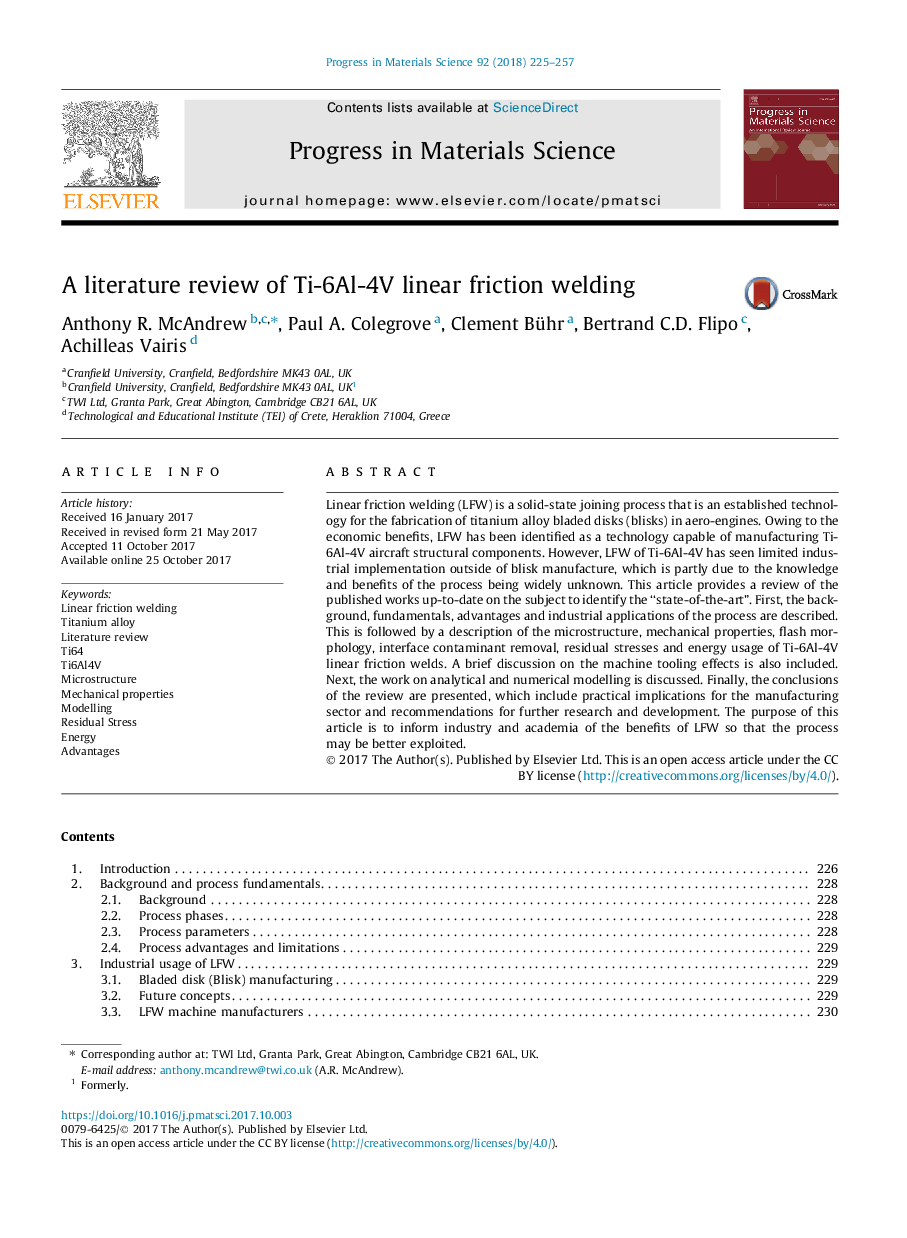| Article ID | Journal | Published Year | Pages | File Type |
|---|---|---|---|---|
| 8023095 | Progress in Materials Science | 2018 | 33 Pages |
Abstract
Linear friction welding (LFW) is a solid-state joining process that is an established technology for the fabrication of titanium alloy bladed disks (blisks) in aero-engines. Owing to the economic benefits, LFW has been identified as a technology capable of manufacturing Ti-6Al-4V aircraft structural components. However, LFW of Ti-6Al-4V has seen limited industrial implementation outside of blisk manufacture, which is partly due to the knowledge and benefits of the process being widely unknown. This article provides a review of the published works up-to-date on the subject to identify the “state-of-the-art”. First, the background, fundamentals, advantages and industrial applications of the process are described. This is followed by a description of the microstructure, mechanical properties, flash morphology, interface contaminant removal, residual stresses and energy usage of Ti-6Al-4V linear friction welds. A brief discussion on the machine tooling effects is also included. Next, the work on analytical and numerical modelling is discussed. Finally, the conclusions of the review are presented, which include practical implications for the manufacturing sector and recommendations for further research and development. The purpose of this article is to inform industry and academia of the benefits of LFW so that the process may be better exploited.
Keywords
Related Topics
Physical Sciences and Engineering
Materials Science
Nanotechnology
Authors
Anthony R. McAndrew, Paul A. Colegrove, Clement Bühr, Bertrand C.D. Flipo, Achilleas Vairis,
